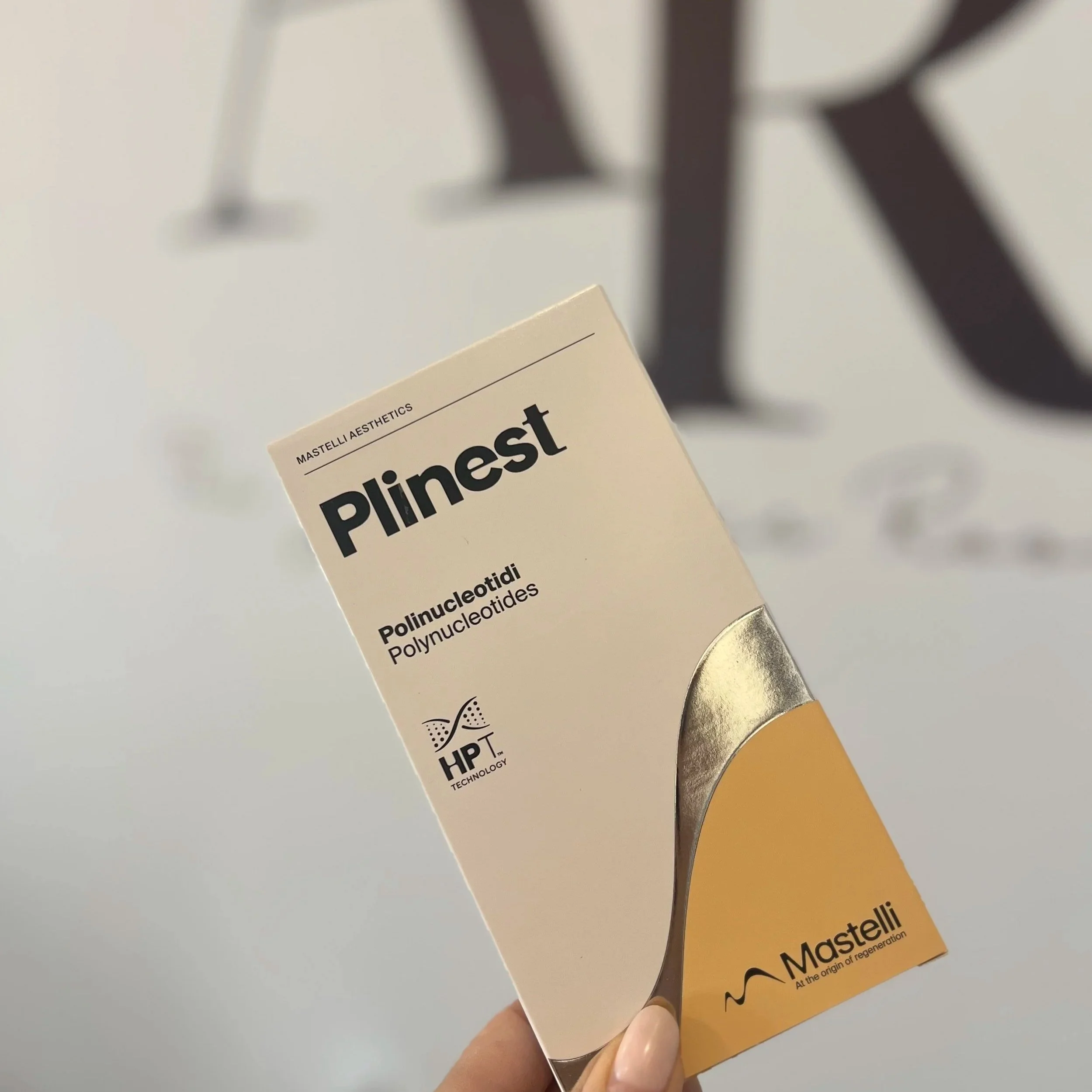Polynucleotides vs Skin Boosters: Which Injectable Treatment Is Right for You?
Skin health treatments have advanced rapidly in recent years, moving far beyond traditional moisturisers and facials. Two of the most effective non-surgical options available today are polynucleotides and skin boosters. Both aim to rejuvenate the skin, but they work in very different ways.
If you’re wondering which treatment is right for you, here’s a clear guide to help you understand the benefits of each.
What Are Polynucleotides?
Polynucleotides are innovative injectable treatments derived from purified DNA fragments. When introduced into the skin, they stimulate fibroblast activity the cells responsible for producing collagen and elastin and help repair tissue damage at a cellular level.
Best for: under-eye rejuvenation, sun-damaged skin, loss of elasticity, fine lines.
Benefits: supports long-term skin regeneration, improves elasticity and thickness, calms inflammation, and reduces oxidative stress (a key driver of ageing).
Results: improvements develop gradually, with skin becoming firmer, healthier, and more resilient over time.
I use Plinest, a clinically researched and trusted polynucleotide treatment.
Plinest Polynucleotide Dorset
What Are Skin Boosters?
Skin boosters are injectable treatments designed to deliver deep hydration and improve skin quality. They are primarily made of hyaluronic acid, a molecule naturally found in the body that binds water and maintains skin suppleness.
When placed beneath the skin’s surface, skin boosters act as an “internal moisturiser”, restoring hydration and subtly improving texture.
Best for: dehydrated or dull skin, fine lines, loss of radiance.
Benefits: boosts hydration, smooths fine lines, brightens skin tone, improves overall glow.
Results: visible within days, lasting for several months.
My chosen product is Profhilo, which not only hydrates but also stimulates collagen and elastin for firmer, more youthful skin.
Prfhilo Skin Boosters Christchurch UK
Polynucleotides vs Skin Boosters: Key Differences
Mechanism:
Polynucleotides = regenerative (stimulates repair and cellular renewal).
Skin boosters = hydrating (restores moisture and radiance).
Timeframe:
Polynucleotides = gradual results, with long-lasting skin improvement.
Skin boosters = faster results, ideal for a quick refresh.
Treatment goals:
For structural improvement and long-term rejuvenation → Polynucleotides.
For hydration and instant radiance → Skin boosters.
For the best of both → a combination plan tailored to your needs.
The Science in Brief
Research shows that polynucleotides help rebuild the skin matrix, improve elasticity, and reduce oxidative stress, all of which contribute to healthier, more youthful skin.
Skin boosters such as Profhilo have been shown to increase hydration levels by up to 20–30%, while also encouraging collagen and elastin production.
Both treatments are clinically backed and deliver safe, effective results when performed by a qualified medical professional.
Both polynucleotides and skin boosters are excellent non-surgical treatments that address different aspects of skin health.
Polynucleotides focus on long-term repair and regeneration.
Skin boosters provide deep hydration and an immediate glow.
Many clients choose a combination for optimal results.
If you’re unsure which option is best for you, a personalised consultation will help create the right treatment plan tailored to your skin’s needs.



